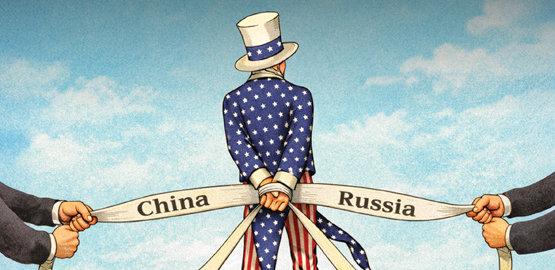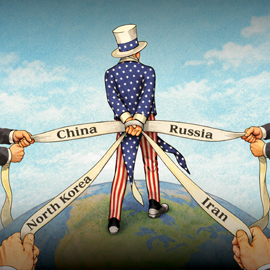News
The Afghan Mini-Surge Has a Strategy Deficit
After prolonged internal debate, the Donald Trump administration seems to be nearing a decision on how to proceed in America’s long war in Afghanistan. Trump’s military advisers -- along with his national security adviser, General H.R. McMaster -- are said to be pushing a plan to send several thousand additional troops into that conflict. Can this “mini-surge” succeed? It all depends on how success is defined. If the goal is to decisively turn the tide of the war and force the Taliban to make peace, then the answer will almost certainly be "no." Yet if the administration seeks more modest but still meaningful goals in Afghanistan, a mini-surge may do the trick.
Why Scholars and Policymakers Disagree
Those who study international security and those who practice it see the same world through very different conceptual lenses. Academics are a conflicted lot, simultaneously cherishing and bemoaning their isolation from the world. Pursuing the life of the mind necessarily entails cultivating independence and even detachment from politics, the news cycle, and government policy. Yet detachment can easily become irrelevance, and in recent years, there has been a tidal wave of concern—from academics and non-academics alike—that international relations scholarship has become ever more remote from the affairs of state.
Why Is the World So Unsettled?
U.S. foreign policy is likely to be wracked by crises in the coming years. Yet crises are often symptoms of deeper structural transformations, and the fundamental fact of international politics today is that the post-Cold War era has reached its end. That period was defined by uncontested U.S. and Western primacy, a marked decline in ideological struggle and great-power conflict, and a historically remarkable degree of global cooperation in addressing international disorder. Today, however, the international system has reverted to a more contested state.
The Trump Administration Just Missed Its Best Shot at a Military Buildup
In its first year, when big changes are easiest, the White House chose domestic cuts over national security. Strengthening the U.S. military was one of the key themes of Donald Trump’s presidential campaign. After saying that “our military is a disaster,” and “depleted,” he colorfully promised to make the U.S. armed forces “so big, so powerful, so strong, that nobody – absolutely nobody – is gonna mess with us.” Trump painted his plans in bold strokes: increasing the size of the Army to 540,000 soldiers, adding 20,000 Marines, bringing the Air Force to at least 1,200 combat aircraft, and increasing the Navy to a fleet of some 350 ships.
The End of History is the Birth of Tragedy
The ancient Greeks took tragedy seriously. At the very height of Athenian power in the 5th century B.C., in fact, citizens of the world’s first democracy gathered annually to experience tragedy. Great theatrical productions were staged, presented to the entire community, and financed by the public treasury. While the dialogue and plot lines varied, the form, and the lesson, remained consistent. Prominent individuals fell from great heights due to their own errors, ignorance, and hubris. The injunction was clear: The destiny of society was in the hands of fallible men, and even in its hour of triumph that society was always perched on the abyss of catastrophic failure.
It’s Time for NATO to Call Turkey’s Bluff
Thursday's NATO Summit provides an opportunity for the alliance to get tough on its putative Turkish ally. Under President Recep Tayyip Erdogan, Turkey's destabilizing policies in Europe and the Middle East have made it appear less an ally and more a Russian Trojan horse. To keep Turkey on track, NATO has been appeasing Erdogan, to no avail. Turkey's recent "Eurasianist turn" and Erdogan's now-constitutionalized one-man rule have only complicated the relationship. It is time for NATO to remind Erdogan that he needs the alliance just as much as NATO needs Turkey.

























